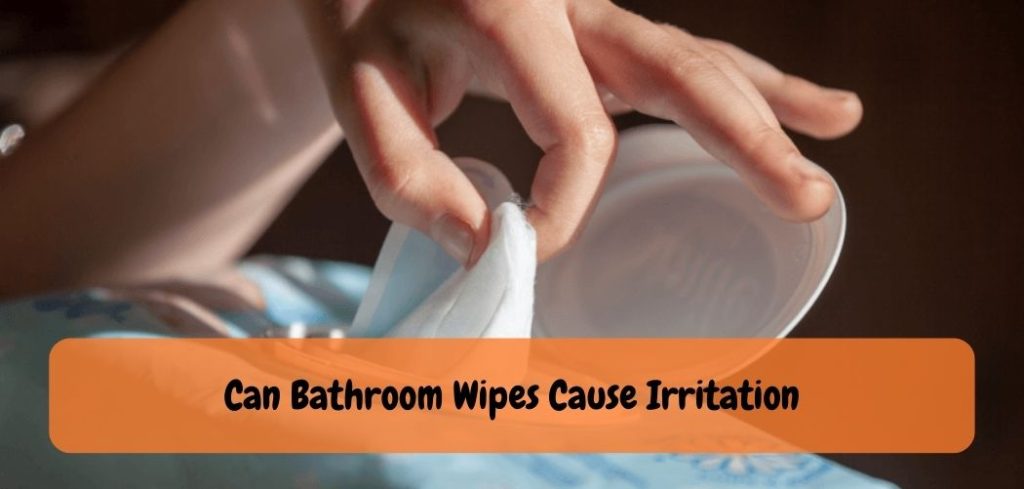In recent years, the convenience and widespread availability of toilet wipes have led to their increasing popularity as an alternative to traditional toilet paper. Marketed as a more effective and refreshing option for personal hygiene, these pre-moistened wipes claim to provide a superior cleaning experience.
However, as with any product, concerns arise regarding their potential side effects and health implications. One of the primary concerns surrounding toilet wipes is the possibility of causing irritation to the delicate skin in the genital and anal areas.
This introduction explores the question: Can toilet wipes cause irritation? By examining the ingredients, proper usage, and potential risks associated with these wipes, we aim to shed light on this topic and provide you with an informed perspective on their use.
The Guide: Can Toilet Wipes Cause Irritation
Toilet wipes have gained popularity as a convenient and refreshing alternative to traditional toilet paper. However, concerns about potential irritation have arisen due to the ingredients and usage of these wipes. This informative guide aims to explore the question: Can toilet wipes cause irritation?
By providing an overview of the ingredients, proper usage, and potential risks associated with toilet wipes, we aim to offer valuable insights into this topic and help you make informed decisions about your personal hygiene.
1. Understanding Toilet Wipe Ingredients:
Toilet wipes often contain various ingredients that can potentially cause irritation to sensitive skin. These may include:
a. Fragrances: Synthetic fragrances added to provide a pleasant scent can be irritating to some individuals, especially those with sensitive skin or allergies. Fragrance-free wipes or those labeled as hypoallergenic may be better options for minimizing irritation.
b. Preservatives: Wipes contain preservatives to prevent the growth of bacteria and maintain product freshness. However, certain preservatives like parabens and formaldehyde releasers can be harsh on the skin and cause irritation or allergic reactions in some individuals.
c. Alcohol: Some toilet wipes contain alcohol as a disinfectant or drying agent. While alcohol can effectively kill germs, it can also strip the skin of its natural oils, leading to dryness and irritation. Those with sensitive or dry skin may want to opt for alcohol-free wipes.
2. Proper Usage Techniques:
To minimize the risk of irritation when using toilet wipes, it is essential to follow proper usage techniques:
a. Avoid Excessive Rubbing: Gentle wiping is sufficient for effective cleaning. Avoid vigorous rubbing or scrubbing, as this can damage the delicate skin in the genital and anal areas and increase the likelihood of irritation.
b. Use Moderately: While it may be tempting to use multiple wipes for thorough cleaning, excessive wiping can disrupt the skin’s natural pH balance and cause irritation. Use the recommended number of wipes or switch to a gentler alternative like unscented baby wipes.
c. Dispose Properly: After use, ensure that you properly dispose of the wipes in a designated bin. Flushing wipes can lead to plumbing issues and environmental problems.
3. Potential Risks and Precautions:
Understanding the potential risks associated with toilet wipes can help you make informed decisions:
a. Skin Sensitivity: Individuals with sensitive skin, existing skin conditions (such as eczema or psoriasis), or a history of allergies may be more prone to experiencing irritation from toilet wipes. Consider using wipes specifically designed for sensitive skin or labeled as hypoallergenic.
b. Allergic Reactions: Some individuals may have allergies to certain ingredients in toilet wipes, such as fragrances or preservatives. If you notice redness, itching, or a rash after using wipes, discontinue use and consult a healthcare professional.
c. Pre-existing Conditions: If you have pre-existing conditions like hemorrhoids or anal fissures, the use of toilet wipes may exacerbate symptoms or cause additional discomfort. It is advisable to consult with a healthcare professional for personalized advice.
4. Alternative Options:
If you’re concerned about potential irritation from toilet wipes, consider alternative options:
a. Traditional Toilet Paper: Using soft, unscented toilet paper can be a suitable alternative to toilet wipes, particularly for individuals with sensitive skin or a history of irritation.
b. Bidets or Wet Wipes: Bidets provide a water-based cleaning method that can be gentle on the skin. Alternatively, you may opt for wet wipes specifically designed for the genital and anal areas, which are typically formulated to be less irritating.
Can Flushable Wipes Cause Skin Irritation?

Flushable wipes can be an incredibly convenient tool for those looking to stay clean, but unfortunately, they can sometimes cause skin irritation.
These wipes are typically made from a combination of synthetic fibers and chemicals that may not sit well with everyone’s skin type. In some cases, these ingredients can irritate the delicate skin around the anus and other sensitive areas.
Those who have particularly sensitive or dry skin should take extra precaution when using flushable wipes as it could lead to uncomfortable rashes or itching.
It is important to read the label on any wipe used in order to determine which ingredients are included in its composition, as this could help reduce your risk of developing an allergic reaction or skin irritation caused by flushable wipes.
Can Bathroom Wipes Cause Irritation?

Bathroom wipes are a convenient way to clean up bathroom surfaces in just a few seconds. However, many people wonder if they can cause skin irritation, especially when used on sensitive areas such as the face or genitals. The answer is yes — it’s possible for bathroom wipes to cause irritation, though this isn’t always the case.
Most of these products contain preservatives and fragrances that may irritate delicate skin tissue. Some also contain alcohol or other harsh chemicals that can dry out and aggravate already sensitive skin. If you have particularly sensitive skin, you should look for hypoallergenic wipes specifically designed to reduce potential reactions with your body’s chemistry.
Additionally, be sure to read labels carefully before purchasing any type of cleaning wipe so that you know what ingredients are included and how they could potentially interact with your body’s chemistry..
Why Butt Wipes Are Bad | 5 Alternatives to Flushable Wipes
Conclusion
The question of whether toilet wipes can cause irritation is one that warrants careful consideration. While these wipes offer convenience and a refreshing alternative to traditional toilet paper, it is important to be aware of potential risks.
The ingredients used in toilet wipes, such as fragrances and preservatives, can be harsh on sensitive skin and may lead to irritation or allergic reactions in some individuals.
Proper usage of toilet wipes is essential to minimize the risk of irritation. Avoid excessive rubbing or scrubbing, as this can damage the delicate skin in the genital and anal areas. Additionally, it is advisable to opt for wipes that are specifically designed for sensitive skin or labeled as hypoallergenic.
It is worth noting that individuals with pre-existing skin conditions, such as eczema or psoriasis, may be more susceptible to irritation from toilet wipes. In such cases, consulting with a healthcare professional is recommended to determine the most suitable personal hygiene options.
Ultimately, the decision to use toilet wipes or stick with traditional toilet paper is a personal one. If you experience any signs of irritation or discomfort, it is important to discontinue use and seek appropriate medical advice.










